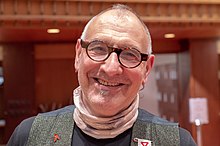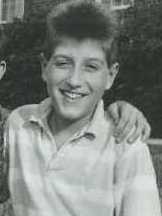
Ryan Wayne White was an American teenager from Kokomo, Indiana, who became a national poster child for HIV/AIDS in the United States after his school barred him from attending classes following a diagnosis of AIDS.
This is a timeline of HIV/AIDS, including but not limited to cases before 1980.
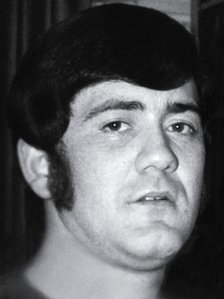
Terrence Lionel Seymour Higgins was among the first people known to die of an AIDS-related illness in the United Kingdom.
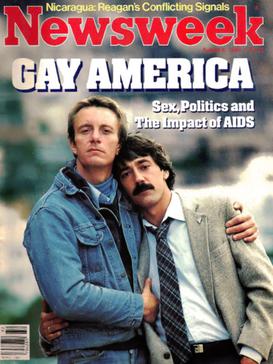
Robert Boyle "Bobbi" Campbell Jr. was a public health nurse and an early United States AIDS activist. In September 1981, Campbell became the 16th person in San Francisco to be diagnosed with Kaposi's sarcoma, when that was a proxy for an AIDS diagnosis. He was the first to come out publicly as a person with what came to be known as AIDS, writing a regular column in the San Francisco Sentinel, syndicated nationwide, describing his experiences and posting photos of his KS lesions to help other San Franciscans know what to look for, as well as helping write the first San Francisco safer sex manual.

Lesbian, gay, bisexual, and transgender (LGBTQ) people in Jamaica face legal and social issues not experienced by heterosexual and gender-conforming people. Consensual sexual intercourse between same-sex partners is legally punishable by up to 10 years of imprisonment in the country.

The human immunodeficiency virus (HIV) is a retrovirus that attacks the immune system. It is a preventable disease. There is no vaccine or cure for HIV. It can be managed with treatment and become a manageable chronic health condition. While there is no cure or vaccine, antiretroviral treatment can slow the course of the disease and enable people living with HIV to lead long and healthy lives. An HIV-positive person on treatment can expect to live a normal life, and die with the virus, not of it. Effective treatment for HIV-positive people involves a life-long regimen of medicine to suppress the virus, making the viral load undetectable. Without treatment it can lead to a spectrum of conditions including acquired immunodeficiency syndrome (AIDS).
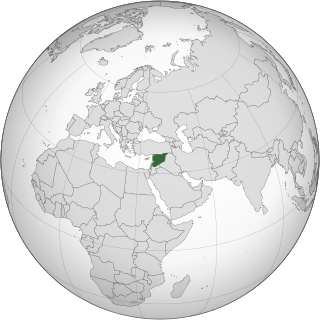
Lesbian, gay, bisexual, and transgender (LGBT) people in Syria face serious legal challenges not experienced by non-LGBT residents. In Ba'athist Syria (1963–2024), Article 520 of the penal code of 1949 prohibited "carnal relations against the order of nature", and it was punishable with a prison sentence of up to three years. However, it is unclear whether this still applies after the Fall of the Assad regime. Vigilante executions, beatings, and torture against LGBT people occur frequently in Syria, including attacks by the rebel group Hayat Tahrir al-Sham and the Islamic State.
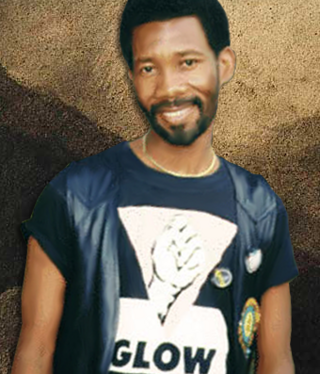
Simon Tseko Nkoli was an anti-apartheid, gay rights and AIDS activist in South Africa. Active in the Congress of South African Students (COSAS), the United Democratic Front, and the Gay Association of South Africa (GASA), he was arrested as part of the Delmas Treason Trial in 1984. After his release in 1988, he founded the Gay and Lesbian Organisation of the Witwatersrand (GLOW) and organized South Africa's first pride parade. His activism influenced the African National Congress (ANC) to enshrine gay rights in the South African constitution. One of the first South Africans to disclose that he was living with HIV/AIDS, Nkoli founded the Township AIDS Project. After his death from AIDS-related complications, his colleagues established the Treatment Action Campaign.

As Is is a 1985 American play written by William M. Hoffman. The play was first produced by Circle Repertory Company and The Glines and directed by Marshall W. Mason. It opened on March 10, 1985 at the Circle Rep in New York City, where it ran for 49 performances.
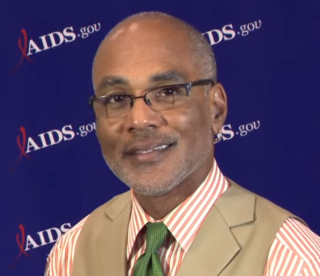
Phill Wilson is an American activist who founded the Black AIDS Institute in 1999, and served as its CEO, and is a prominent African-American HIV/AIDS activist.
AIDS was first diagnosed in 1981. As of year-end 2018, 160,493 people have been diagnosed with HIV in the United Kingdom and an estimated 7,500 people are living undiagnosed with HIV. New diagnoses are highest in gay/bisexual men, with an estimated 51% of new diagnosis reporting male same-sex sexual activity as the probable route of infection. Between 2009 and 2018 there was a 32% reduction in new HIV diagnosis, attributed by Public Health England (PHE) to better surveillance and education. PHE has described an "outbreak" in Glasgow amongst people who inject drugs, and has campaigns targeting men who have sex with men in London and other major cities. London was the first city in the world to reach the World Health Organization target for HIV, set at 90% of those with HIV diagnosed, 90% of those diagnosed on HAART and 90% of those on HAART undetectable. The UK as a whole later achieved the same target. Under the Equality Act 2010, it is illegal to discriminate against someone based on their HIV status in the UK.
The history of HIV/AIDS in Australia is distinctive, as Australian government bodies recognised and responded to the AIDS pandemic relatively swiftly, with the implementation of effective disease prevention and public health programs, such as needle and syringe programs (NSPs). As a result, despite significant numbers of at-risk group members contracting the virus in the early period following its discovery, Australia achieved and has maintained a low rate of HIV infection in comparison to the rest of the world.

And the Band Played On is a 1993 American television film docudrama directed by Roger Spottiswoode. The teleplay by Arnold Schulman is based on the best-selling 1987 non-fiction book And the Band Played On: Politics, People, and the AIDS Epidemic by Randy Shilts, and is noteworthy for featuring both a vast historical scope, as well as an exceptionally sprawling cast.

Mark Christian Ashton was a British gay rights activist and co-founder of the Lesbians and Gays Support the Miners (LGSM) support group. He was a member of the Communist Party of Great Britain and general secretary of the Young Communist League.

Lesbians and Gays Support the Miners (LGSM) was an alliance of lesbians and gay men who supported the National Union of Mineworkers during the year-long strike of 1984–1985.
Since reports of emergence and spread of the human immunodeficiency virus (HIV) in the United States between the 1970s and 1980s, the HIV/AIDS epidemic has frequently been linked to gay, bisexual, and other men who have sex with men (MSM) by epidemiologists and medical professionals. It was first noticed after doctors discovered clusters of Kaposi's sarcoma and pneumocystis pneumonia in homosexual men in Los Angeles, New York City, and San Francisco in 1981. The first official report on the virus was published by the Center for Disease Control (CDC) on June 5, 1981, and detailed the cases of five young gay men who were hospitalized with serious infections. A month later, The New York Times reported that 41 homosexuals had been diagnosed with Kaposi's sarcoma, and eight had died less than 24 months after the diagnosis was made.

Pride is a 2014 historical comedy-drama film written by Stephen Beresford and directed by Matthew Warchus. Based on a true story, it depicts a group of lesbian and gay activists who raised money to help families affected by the British miners' strike in 1984, at the outset of what would become the Lesbians and Gays Support the Miners campaign.

Lisa Power MBE is a British sexual health and LGBT rights campaigner. She was a volunteer for Lesbian & Gay Switchboard and Secretary General of the International Lesbian and Gay Association. She co-founded the Pink Paper and Stonewall, later becoming Policy Director at the Terrence Higgins Trust. She was the first openly LGBT person to speak at the United Nations and continues to work and volunteer as an LGBT+ and sexual health activist in Wales with groups such as Fast Track Cymru and Pride Cymru.
Lesbians Against Pit Closures (LAPC) were an alliance of lesbian women who came together to support the National Union of Mineworkers and various mining communities during the UK miners' strike of 1984–1985. They were formed after a schism in the Lesbians and Gays Support the Miners (LGSM) movement, in November 1984. Members of the organisation were involved in picket line protests against the delivery of coal to the factories by strikebreakers.
Scottish AIDS Monitor (SAM) was a Scottish HIV and AIDS awareness organisation that was active between 1983 and 1996.
